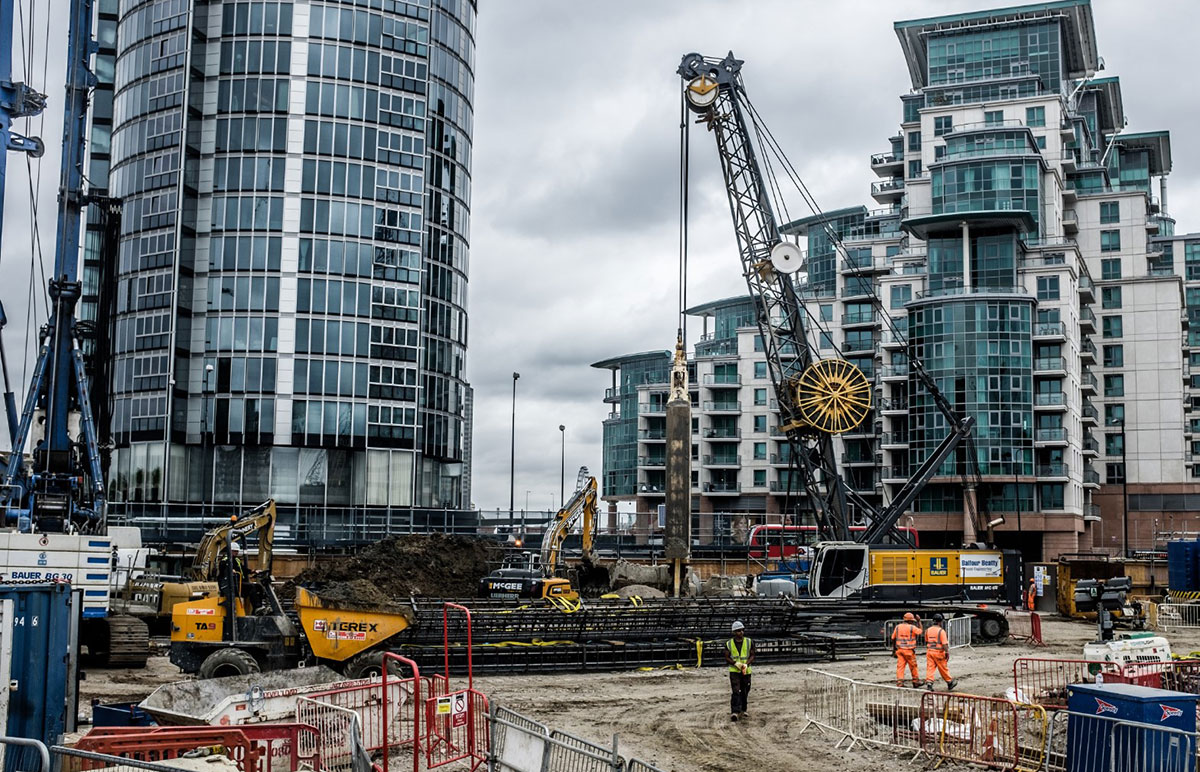The Ultimate Guide To Geotheta
Table of ContentsSome Of GeothetaSome Of GeothetaMore About GeothetaGeotheta for DummiesWhat Does Geotheta Mean?

They perform website examinations, accumulate examples, carry out laboratory tests, and evaluate information to examine the viability of the ground for building and construction tasks - Consulting Engineers. Based upon their findings, geotechnical engineers give recommendations for structure design, slope security, preserving frameworks, and mitigation of geotechnical dangers. They team up with other experts, such as architects, structural designers, and building teams, to ensure that geotechnical factors to consider are integrated into the total job design and execution
By evaluating the habits and residential properties of soil and rock, they can identify possible geotechnical risks such as landslides, dirt negotiation, or incline instability. Their competence assists protect against failures or crashes that could endanger lives and residential property. Here are some thorough duties and responsibilities of a geotechnical designer: Site Investigation: Geotechnical engineers conduct site investigations to collect data on subsurface conditions.
They translate the data to understand the residential properties and actions of the soil and rock, including their stamina, permeability, compaction attributes, and groundwater problems. Geotechnical Evaluation and Style: Geotechnical engineers assess the data gathered during site investigations to evaluate the stability and viability of the site for building jobs. They execute geotechnical computations and modeling to examine aspects such as birthing capacity, negotiation, slope security, side earth pressures, and groundwater circulation.
Rumored Buzz on Geotheta
Foundation Design: Geotechnical engineers play a crucial function in creating foundations that can safely support the intended structure. They analyze the dirt problems and lots requirements to figure out the proper structure type, such as superficial structures (e.g., grounds), deep foundations (e.g (https://www.ted.com/profiles/47432098)., heaps), or specialized strategies like soil enhancement. They think about factors such as negotiation limits, bearing capacity, and soil-structure interaction to establish optimum foundation styles
They assess building plans, display site activities, and carry out area examinations to validate that the layout recommendations are followed. If unpredicted geotechnical concerns occur, they evaluate the circumstance and supply suggestions for removal or modifications to the design. Danger Assessment and Reduction: Geotechnical designers analyze geotechnical threats and threats connected with the task website, such as landslides, liquefaction, or dirt erosion.

Partnership and Interaction: Geotechnical designers function closely with various other experts entailed in a job, such as architects, structural designers, and construction groups. Efficient communication and cooperation are necessary to incorporate geotechnical factors to consider right into the general task layout and construction procedure. Geotechnical engineers give technical know-how, solution queries, and guarantee that geotechnical needs are fulfilled.
A Biased View of Geotheta
Here are some kinds of geotechnical engineers: Structure Designer: Structure engineers focus on designing and analyzing foundations for structures. They evaluate the soil conditions, load needs, and site characteristics to figure out the most proper foundation type and design, such as superficial structures, deep structures, or specialized techniques like heap structures.
They review the factors influencing incline stability, such as soil homes, groundwater problems, and incline geometry, and establish methods to prevent incline failures and alleviate threats. Quake Engineer: Quake engineers concentrate on examining and making structures to stand up to seismic forces. They analyze the seismic danger of a site, evaluate dirt liquefaction possibility, and create seismic design standards to make sure the safety and resilience of frameworks throughout earthquakes.
They do field screening, collect samples, and analyze the accumulated data to define the soil residential or commercial properties, geologic developments, and groundwater problems at a site. Geotechnical Instrumentation Engineer: Geotechnical instrumentation designers concentrate on tracking and gauging the habits of soil, rock, and structures. They mount and preserve instrumentation systems that keep track of variables such as soil negotiation, groundwater degrees, slope movements, and architectural displacements to examine performance and offer early warnings of potential problems.
The Single Strategy To Use For Geotheta
They perform examinations such as triaxial examinations, combination examinations, best site direct shear tests, and permeability tests to collect data for geotechnical analysis and design. Geosynthetics Engineer: Geosynthetics designers specialize in the style and application of geosynthetic products, such as geotextiles, geogrids, and geomembranes. They use these materials to improve soil security, strengthen slopes, give water drainage services, and control erosion.
They have a tendency to be investigative individuals, which indicates they're intellectual, reflective, and curious. They are curious, systematic, sensible, logical, and sensible. Some of them are also social, implying they're kind, generous, participating, individual, caring, valuable, compassionate, skillful, and friendly - Geo Tech Engineering.
In the workplace environment, geotechnical designers use specialized software program devices to carry out calculations, produce styles, and evaluate information. They prepare reports, evaluation project requirements, connect with customers and employee, and coordinate project tasks. The office setting provides a favorable setting for study, evaluation, and partnership with other specialists associated with the job.
Indicators on Geotheta You Need To Know
They frequently visit task sites to carry out website investigations, assess geotechnical conditions, and gather data for evaluation. These brows through entail traveling to various areas, in some cases in remote or difficult surfaces. Geotechnical designers might carry out dirt tasting, conduct tests, and display building activities to guarantee that the geotechnical facets of the project are being executed properly.
Geotechnical designers likewise work in specialized geotechnical labs. In these centers, they conduct experiments, carry out tests on soil and rock examples, and assess the engineering residential properties of the materials. Geotechnical research laboratory engineers function thoroughly in these environments, handling testing tools, running instruments, and videotaping information. They work together with other laboratory team to make sure exact and reliable testing outcomes.